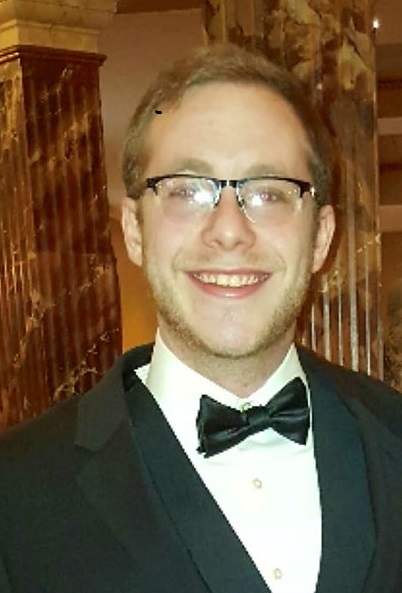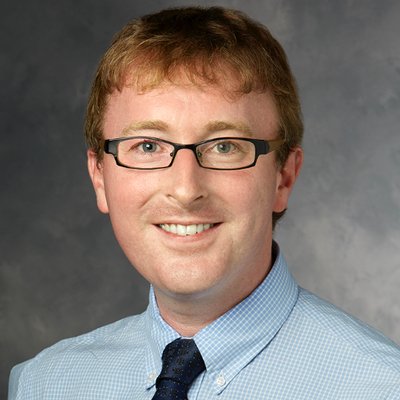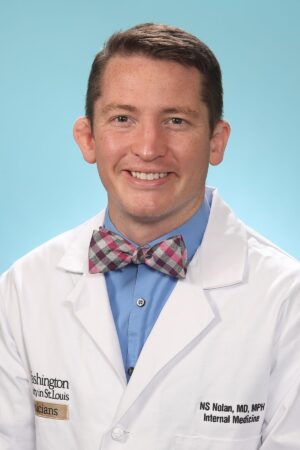
“Interprofessional, Multidisciplinary Case Conferences: A Novel Approach to Integrating Health Equity Education into Graduate Medical Training Programs” will be the topic of a workshop at the Alliance for Academic Internal Medicine Week 2022 (AIMW22) thanks to a multi-division collaboration of WashU physicians and allied health professionals.
The proposal for the workshop, submitted by Frank O’Brien, MBBCh, MRCPI, Assistant Professor of Medicine, Division of Nephrology, Lisa Zickuhr, MD, Assistant Professor of Medicine, Division of Rheumatology, Andrew Robinson, MSW, LMSW, Outpatient Social Worker, Division of Rheumatology, and Nathan Nolan, MD, MPH, Instructor in Medicine, Division of Infectious Diseases, was accepted for presentation at AIMW22, which is to be held April 10 -13, 2022, at the Charlotte Convention Center, Charlotte, NC.

The workshop grew out of the experience of the three WashU Department of Medicine divisions, who joined together last year to create the Health Equity Case Conference Series for current and incoming fellows. The year-long series introduces fellows to how health inequalities impact the development of a wide range of diseases, including kidney disease. The new curriculum is designed to not only increase awareness of health inequity, but also promote an interprofessional team approach to medicine that is needed to address these issues.

Renal Inpatient Social Worker Carrie Koeller, MSW, LCSW, a member of the educational series, says, “The conference has provides a unique opportunity to collaborate with other divisions. We sift through some of the very complex issues our patients face. We get to learn some useful tools from one another that will help us improve our practice and provide better care to our patients.”
Andrew Robinson, MSW, LMSW, Outpatient Social Worker for the Division of Rheumatology, one of the presenters for the workshop, comments on the new style of patient engagement: “It is great progress to see health care being approached from a collaborative, equitable, and inter-professional lens. By working with providers to help better treat patients from all walks of life and to meet them where they are, we will be able to better impact health outcomes for our patients.”

Dr. O’Brien, Associate Program Director for Curriculum Development for the Nephrology Fellowship Training Program, is one of the faculty members leading the series. “The three divisions share a similar core group of patients,” he says. “Health inequities are taught in medical school, but it’s rare to continue that focus in fellowship programs. We are changing that because these issues directly affect the health outcomes of our patients. This workshop aims to not only address the topic of health inequity education, but also emphasize the importance of interprofessional education as it pertains to our patients.”

Dr. Zickuhr, Associate Program Director for the Rheumatology Fellowship Training Program, has studied how medical education materials contribute to healthcare disparities. In a 2021 publication in Nature Reviews Rheumatology titled “Rheumatology resources need reform to represent all patients,” she emphasizes that medical publishers and educators need to promote equal representation and care of patients with all skin types. “These shortcomings in medical education limit providers’ clinical confidence and skills when caring for patients of color,” she says. “Thoughtful integration of health equity into medical education enriches our fellows’ training and our patients’ care. Since starting the Health Equity Case Conference, we have observed an increase in the fellows’ enthusiasm for identifying and addressing patients’ barriers to care.”

Dr. Nolan, a third-year Medical Education Fellow, specializes in clinical medicine and education with a focus on marginalized populations, including patients who use drugs and patients who are unhoused. His research has focused on infection prevention in homeless shelters and managing infections in people admitted with complications of injection drug use.
Registration for AIMW22 is now open.
On Twitter, follow @frankjobrien84 @LisaZickuhr @NNolanMD, @WUNephrology, @WUSTL_Rheum, @WashUID, and @AAIMOnline.